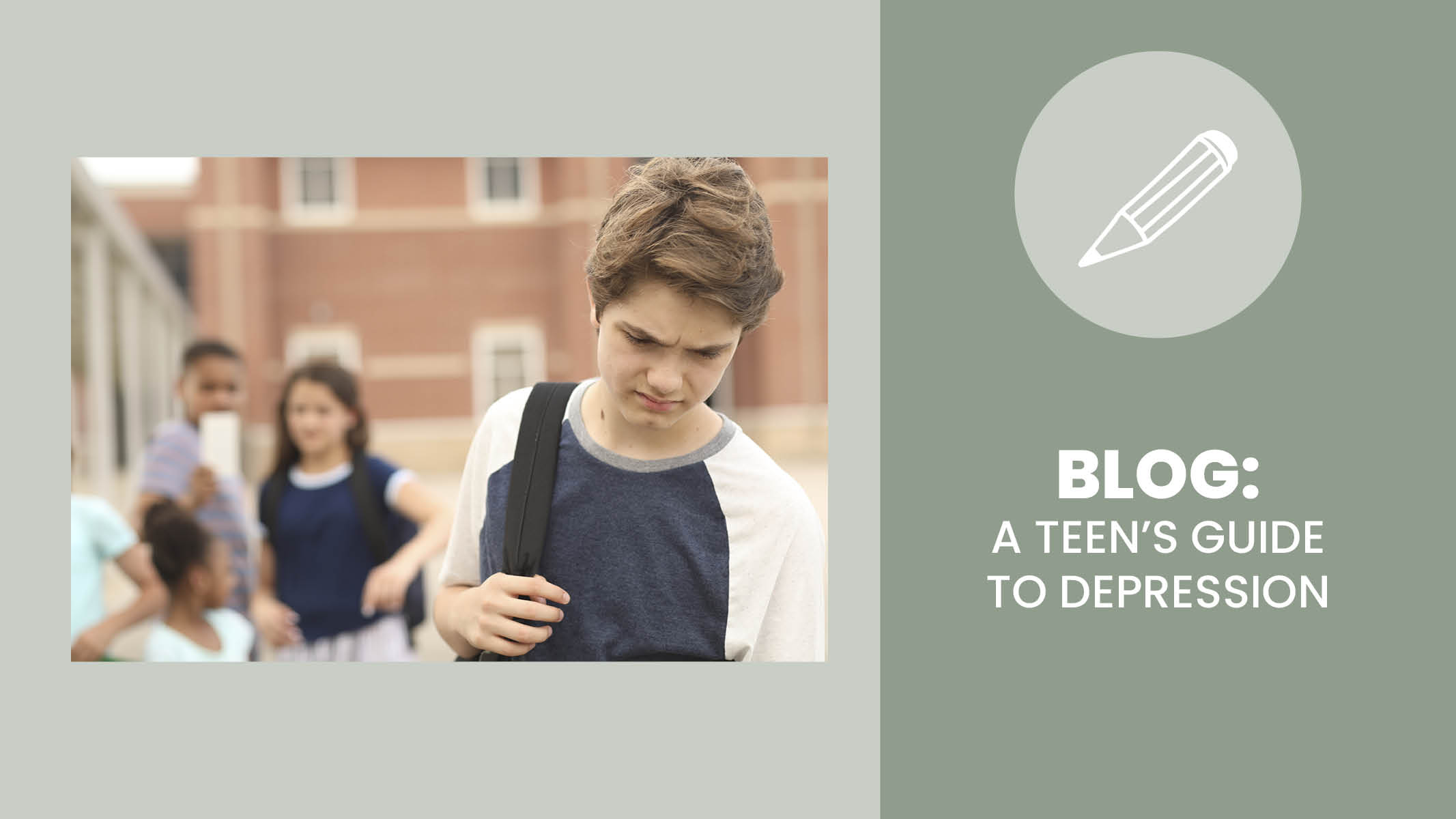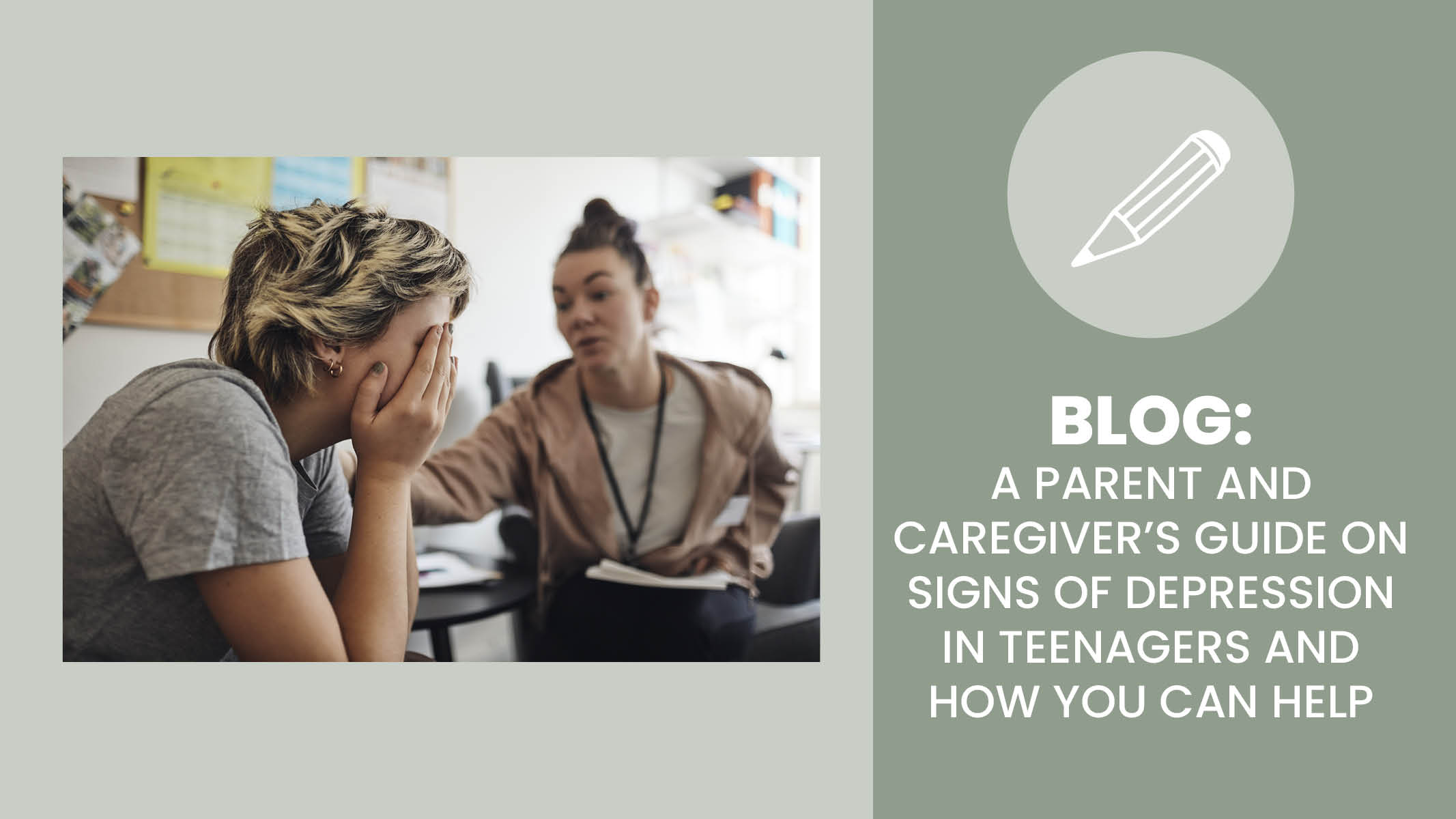Have you ever felt like no one understands you? Have you heard, “Why are you so sad? I wish you’d snap out of it,” before?
The teenage years can be tough, but it shouldn’t feel hopeless. It’s normal to feel sad or irritated from time to time, but if you’re feeling like life has been full of more downs than ups, you might be experiencing depression. The weight of depression is heavy, but it’s not something you have to suffer with alone. You are not your depression, and you are not flawed. There is hope and there is help.
We spoke with Dr. Cross-Hillman, a Psychologist at Sanford Health, to give you expert knowledge on depression and tips to cope. Let’s learn more together.
What is depression? How do I know what’s normal and what’s not? Depression is more than an occasional bad mood. Depression is feeling very sad or having a loss of interest in normal activities for 2 weeks or more. According to Dr. Cross-Hillman, distinguishing between the normal ups and downs and something more serious can be challenging. She explains, “It can be developmentally normal to spend more time away from your parents or caregivers as you work toward independence. Because of that, it’s important to consider how persistent those ups and downs in your mood are, and whether there are more “downs” or irritability more days than not for at least two weeks.”
What are the signs and symptoms of depression I should look for? Some symptoms and feelings you may experience if you have depression are:
- You emotionally or physically withdraw from family or friends.
- You fight with family or friends more than usual.
- Life and the future seem pointless.
- You have a sense of worthlessness or guilt.
- You have trouble thinking, concentrating, making decisions, and remembering things.
- You have thoughts of self-harm or suicide.
- You’re experiencing changes in your sleep like insomnia or sleeping too much.
- You’re using alcohol or drugs to cope.
Why am I depressed? According to Dr. Cross-Hillman, “It’s important to consider what your day-to-day looks like. Conflict with parents and/or caregivers can become a challenge and lead to a depressed mood, especially if a conflict has been going on for a while. There has been a growing amount of research that indicates our time on electronics, particularly social media, can lead to a decline in mood since it can separate us from “real life” interactions, can lead to unhealthy comparison, and can make us vulnerable to hurtful or even risky interactions with peers. Aside from time spent on electronics and social media, conflict or struggles with friends and of course, experiencing bullying “in real life” could lead to depression too. Some teens attempt to cope with depression by using substances; however, substance use can also lead to depression.”
How can I cope with my depression?
- Try not to isolate yourself. Talk with someone you trust, spend time with friends you appreciate, volunteer, or start activities you used to enjoy doing.
- Build healthy habits. Getting enough quality sleep, spending time away from screens and social media, fueling your body with nutritious food, and moving your body all contribute to your overall well-being and mood.
- Practice coping activities like these journaling prompts or other coping techniques listed here.
- Seek treatment and make an appointment to see a doctor or mental health professional. If you don’t want to make the call, ask someone you trust to make it for you.
- If you or someone you know is experiencing thoughts of self-harm or suicide or just need support now, call or text 988 to reach a Suicide and Crisis Lifeline available 24 hours a day, seven days a week, or chat at 988lifeline.org.
How can I help my friend who’s experiencing depression? Dr. Cross-Hillman explains that “Depression can become quite serious so it’s best to get an adult helper involved. You can support your friend by telling their parent or caregiver that they are really struggling or support them in telling a school counselor. Aside from providing encouragement with getting an adult involved, you can spend time with your friend, offer to plan something fun, and give support by listening.”
Remember, depression is not a weakness or something that can be fixed with willpower. Depression is highly treatable with the right care and support. There is hope, and there is help.
The article series on teen mental health is made possible by First International Bank & Trust.
Ready for More? You Might Also Like:
Depression is More Than a Mood: Activities for Teens
Mental Health is Health: Activities for Teens
Understanding Stress and Anxiety: Activities for Teens



